Description
Genus: Tylopilus
Species: ferrugineus
Tells: One of the two classic brown & whites. White-buff pores age pinker & bruise brown. Cap flesh bruises dull brown. No beveled edge on the cap.
Other Information: Likes oak. T. badiceps is very similar but this grows larger, ages to have pink tones in the pores, has flesh that stains more brown than pink, has a pink/brown vs. purple/brown spore print, does not have the “beveled cap edge” typical of that one, & lacks any purplish tones in the stem. (That may sound like a lot, but it isn’t; the two are very hard to tell apart). Both are very good edibles.
Edibility: Good.
CHEMICAL TESTS:
- NH4OH (Ammonia): Cap skin flashes violet to wine-read, before shifting to reddish- to blackish- brown. Cap flesh turns faintly yellowish.
- KOH: Cap skin turns dark brown to blackish brown. Cap flesh turns faintly yellowish.
- FeSO4 (Iron Salts): Cap skin turns olive-green. Cap flesh turns blue-green.
Links:
 |
0 |  |
0 |  |
264 |  |
377 |

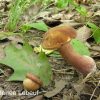
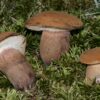
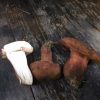
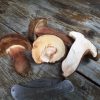
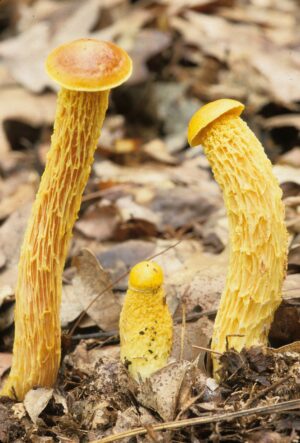

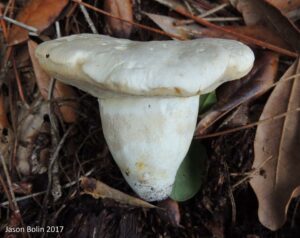
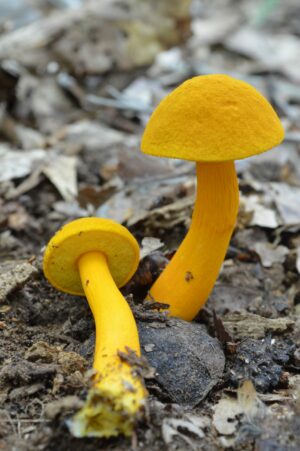
Got something to discuss?
There are approx 32 of what I think is Tylopilus ferrugineus growing under an oak tree in my Southern Indiana yard. They are about 6 inches average diameter, light brown caps with white flesh, no reticulation on slightly bulbous, brown stems. They bruise brown and have a very slight bitter or astringent taste when nibbled raw. But I disposed of one in the trash and it later smelled awful, rotten. While I may have a good food source, I am hesitant to cook them now. Opinion/suggestion?